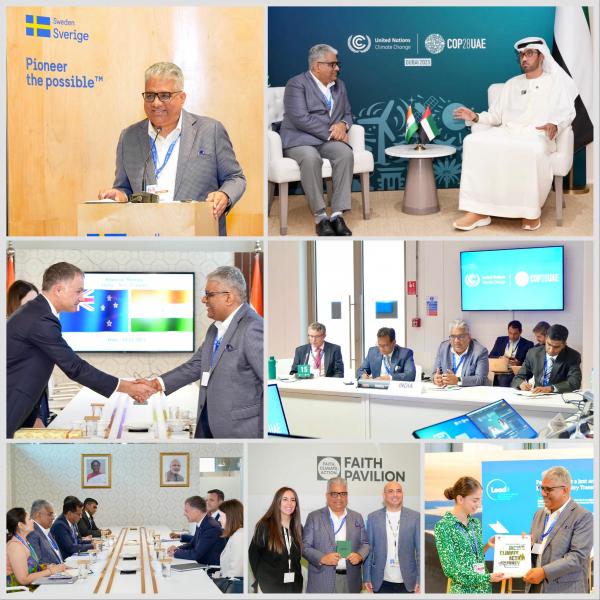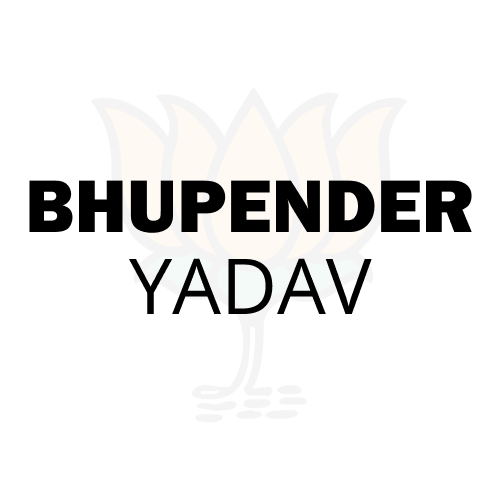
COP28 Diary | Discussions gather steam. India demands equity and climate justice
10/12/2023
BLOG
A day after India presented its National Statement at COP28 in Dubai, UAE and shared its Third National Communication with United Nations Framework Convention on Climate Change, I addressed an event to discuss Partnerships for a Just and Equitable Industry Transition under the aegis of the Leadership Group for Industry Transition which has entered its second phase with the launch of LeadIT 2.0 by Hon’ble Prime Minister Shri Narendra Modi and Swedish PM Mr. Ulf Kristersson.
At the LeadIT Summit yesterday, the members reinforced their commitment to the vision and mission of LeadIT through the Mission Statement.
Speaking at the event, I stated that during the first phase of LeadIT, i.e. from 2019 to 2023, we have observed a significant shift in the global industrial landscape as industry transition climbs higher on the international agenda.
The real transition challenges of technology transfer and finance, however, are yet to be addressed, I said.
I also underlined the need for collaborative international mechanisms to ensure that barriers such as intellectual property rights are addressed to facilitate technology transfer from developed to developing countries.
Going ahead, LeadIT 2.0 will focus on supporting low carbon transitions on the ground through a structured framework and three pillars — a global forum for dialogue; technology transfer and co-development; and an Industry Transitions Platform. Through these pillars, the members will continue to support, engage in and promote industry transitions.
I also highlighted that India and Sweden have had long-standing relations based on common values; strong business, investment, and research and development (R&D) linkages; and similar approaches to meet global challenges of peace and security and development. We also share commitment to innovation, sustainability, and inclusive growth and this bond has been further strengthened through the launch of the “Industry Transition Platform” under LeadIT 2.0 by our leaders.
The India-Sweden Joint Declaration on Industry Transition Platform is an alliance for a sustainable future. It is a testament to our collective resolve to address the climate crisis and shape a world where industries thrive harmoniously with the environment.
The India-Sweden ITP shall be operationalized through an Industry Transition Action Plan for the period of 2024-2026, that will be developed in consultation with key stakeholders of the targeted hard-to-abate sectors.
...
In between the discussions and deliberations, I visited the Faith Pavilion set up by Interfaith Center for Sustainable Development. The Pavilion is a dedicated space for different faiths, traditions, and perspectives to come together to achieve a better future for planet Earth and humanity. The Pavilion offers an opportunity to connect with religious representatives and activists dedicated to environmental protection and climate justice. The Pavilion also engages new audiences in finding innovative solutions to the climate crisis.
Reconnecting to one’s self, which is one with Nature, is the surest way to healing the environment. While technology offers solutions to some of the problems, nature needs healing and it can only happen by way of invoking environmental consciousness in people. Many of us find healing in our respective faiths, similarly the environment too can heal through faith.
The Faith Pavilion visit was thus refreshing and provided an opportunity to see things from the point of view of healing through faith.
***
I also participated in a forum, which UAE has named Majlis, to deliberate, debate and share views towards building consensus. Leaders put forth their views on some contentious issues and everyone heard out the other patiently.
I also took part in the BASIC – Brazil, South Africa, India and China – ministerial meeting.
As the day progressed, I held bilateral discussions with French Minister for Energy Transition Ms Agnes Pannier Runacher, New Zealand Minister of Climate Change Hon Simon Watts, and UAE’s Special Envoy on Climate Change Dr Sultan Ahmed Al Jaber on a range of issues towards climate justice and equity along with deepening partnership in knowledge sharing.
I wrapped the day with a dinner with the Indian diaspora. It was lovely to hear their experiences and how they are adding to India’s glory in UAE.
